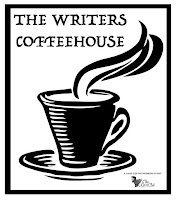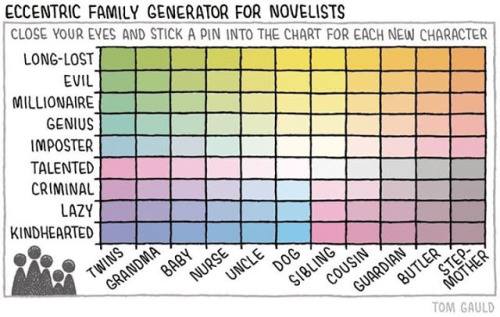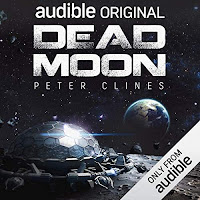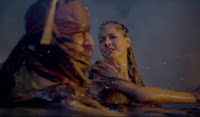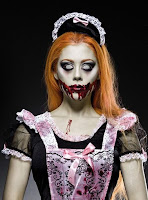Hey everybody!
(Hi, Doctor Nick!)
I’d like to thank you all for your patience while I was off finishing that book. I went through a brutal last week of work on it. I decided to change the last five chapters and then still squeeze in another polish draft. Because why not, right…?
And I’m assuming you’ve all been patient. For all I know this was the last straw and you all said screw it—Victoria Schwab just tosses out great writing advice on Twitter. Why am I wasting time waiting for this guy to come back?
I may just be writing into the internet void.
Ah, well. I’ll give it a few weeks to be sure.
So, speaking of the void, a couple months back I talked about outlines, and how my attitude toward them has changed over the years. And it is so weird to say “over the years.” I’m still amazed I’ve been doing this for as long as I have.
Anyway, I talked a bit about outlines and promised to revisit the topic because… well, this book I just finished was the first time I’ve done a book with a really full, complete outline. The analogy I made was going from roughly planning out a trip to having an hour-by-hour itinerary. And since my previous attempts to work with an outline hadn’t gone so well, I thought it would be worth talking about what I did and how it all worked out in the end.
 First off, as I mentioned before, the outline for this book was huge. Forty-two single-spaced pages, almost double what I’ve ever done before with this kind of blueprint. I had everything broken down by chapters, I had notes of which chapters were done from which points of view. And I had another four page document that was just notes on characters—names, backgrounds, wardrobe. I could probably say I had fifty pages of this done before I sat down to start actually writing it.
First off, as I mentioned before, the outline for this book was huge. Forty-two single-spaced pages, almost double what I’ve ever done before with this kind of blueprint. I had everything broken down by chapters, I had notes of which chapters were done from which points of view. And I had another four page document that was just notes on characters—names, backgrounds, wardrobe. I could probably say I had fifty pages of this done before I sat down to start actually writing it.
Remember that last bit—we’ll come back to it.
It’s also worth mentioning that I spent almost five weeks working on this outline. More than a month. There were many false starts. There was feedback. I pretty much went through drafts of my outline.
Was it worth it?
Well, taking the holidays and a week with a bad back into consideration, I finished up a first draft in just under nine weeks. That’s pretty good for me. My first drafts are usually somewhere between two to three months, so this one basically scraped right up against that, on the quicker side.
But…
It’s also worth noting that this was a much, much tighter first draft than I usually do. I’ve joked about the number of notes I’d usually leave for myself in a first draft. MAKE THIS SOUND COOLER or ADD A CHAPTER EXPLAINING THIS. Usually, I’d have ten or twelve of these in a first draft. This time around I had… four? Maybe five? And only two of them all that big. So my second draft took just over a week, if memory serves. About eight days, altogether. In the past, that’s been a three to four week process, patching over all those holes.
Now… let’s crunch some numbers.
I’m sure one or two of you are seeing this as a brilliant validation of outlines. They make things go so much faster and easier. Three months down to two? Three weeks down to a little more than one? Fantastic! I shaved 33% or more off my time.
Did I though…?
I mean, as I mentioned above, once I add in the five weeks of work for that outline, the overall work period is just about as long as it used to be. It went much smoother, yes—much less head-banging-on-keyboard—but I’m almost tempted to say it took a little bit longer. Not drastically longer, but I’m not sure it really saved any significant time in the long run. I just used the time differently.
Also worth mentioning—what’s that old chestnut, no plan survives contact with the enemy? Same thing here. No outline survives contact with the actual story. As things are building and fleshing out, they change. These are no longer those characters, able to carry out those actions. One character in this book had a complete 180 personality change from first to second draft, from angry yelling guy to eerily calm smiling guy. Which worked so much better for the story and made one of those fill-in-the-blank sections turn out completely different than I originally planned.
 That’s also why the ending changed, as I mentioned at the start. I rewrote the last five chapters of the book. The last seven, really, because once the characters were well-established and the pace was set… well, I came to some realizations. One was that some of my ending was pointless conflict—just drama and action for the sake of drama and action, nothing else. Also, I had a much clearer view of how some characters would react, and those little tweaks changed how some things needed to happen.
That’s also why the ending changed, as I mentioned at the start. I rewrote the last five chapters of the book. The last seven, really, because once the characters were well-established and the pace was set… well, I came to some realizations. One was that some of my ending was pointless conflict—just drama and action for the sake of drama and action, nothing else. Also, I had a much clearer view of how some characters would react, and those little tweaks changed how some things needed to happen.One other thing to keep in mind that I’d never considered—using a really dense, detailed outline can be a bit brutal if you’re someone who likes tracking their word count. Every day I’d type out 1500-2000 words and feel really good about myself. And then I’d delete all the notes for that chapter, which would knock the overall word count back by 500-750 words. Yeah, I still wrote the same amount, but… well, if those numbers mean a lot to you, it can be kinda disheartening.
What does all this boil down to?
Well, not much. As I’ve said in the past, an outline is a tool for my writing arsenal, but there’s no law that says I have to use that tool. For me—someone writing on a hard deadline as part of my full-time job—yeah, I think I may try using this tool again. For you, maybe not. Maybe you’re still at a point where you can take the time to just feel your way through the story. Maybe you just don’t want to deal with an outline and have that much planned out for you. These are all fine things. Like so many things on the writing side, it comes down to what works best for you. That’s the Golden Rule I mention here so often.
And those are my thoughts on outlines.
At this point I’ll toss out the reminder that my latest book, Dead Moon, is currently available exclusively from Audible.com. It’s set in the Threshold universe, so if that’s your thing you may like it. You may like it anyway. Please check it out, and if you already did reviews are always appreciated.
Also, if you’re in the southern California area, this Sunday is the Writers Coffeehouse at Dark Delicacies in Burbank. We’ll be there noonto three chatting about exposition and types of contracts. As always, it’s 100% completely free (no fees, no dues, no sign-ups, no emails, nothing), and much like this blog, it’s kinda entertaining and semi-educational. Feel free to stop by.
Next time…
Well, it’s been a while. If anyone’s had a topic gnawing at them, please let me know in the comments. Otherwise I’ll just babble on about spelling or superheroes or something.
Until then… go write.



